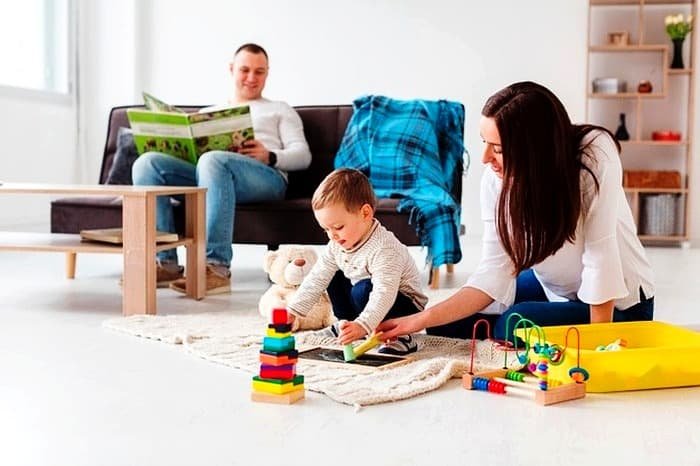10 Things That Make Children Happier
One of the most delightful experiences for a person is their childhood. It’s a unique time filled with play, excitement, fun, and exploration, creating concern for parents to ensure their children are happy and healthy.
In this section of the siteSelMagzWe have combined psychological research with childhood happiness to present 10 essential tips, which we will discuss next.
Parental behaviors that enhance children’s happiness
1. Allow them time to play:
The primary responsibility of kids is to play. While they will eventually have homework and extracurricular activities, their childhood should be a time of freedom and joy. Kids learn important life lessons from one another.
2. Keep discussions away from them:
Children’s minds develop tremendously during childhood; hearing and seeing problems like teenagers can negatively impact them, causing feelings of discomfort and insecurity.

3. Avoid comparing them to others:
Pressuring children to succeed creates false impressions and builds a different person since being compared to others affectstheir self-confidenceand impacts them.
4. Teach them aboutnegative feelings:Children are not very mature and often get angry, jealous, or upset on their own. These moods create a good learning environment for kids. Scientists regard children’s bad moods as part of punishment. The best approach is to teach children that experiencing all negative emotions is normal, and they should learn how to cope with them.

5. Appreciate their skills:
Children try to appear mature because they learn that hard work is for adults. When children take on tasks, discuss childhood duties with them. Our message to parents is to focus on the process of what children do rather than just the outcomes.
6. Family values and traditions:
Doing various activities together as a family is a sign of family strength, which is vital for childhood. Spending time with family members brings five benefits: children feel valued and loved, they witness positive behaviors from teens, teens can guide the children’s weaknesses, children express their feelings and thoughts, and a stronger bond is built between children and parents.

7. Allow them to take chances:
Children need supervision, and teens can often monitor their every move. Dependence on parents can hinder children’s growth. Excessive attention to children’s needs can prevent them from learning essential life skills, like independence and problem-solving.
8. Assign them responsibilities:
It is very important to allow children to complete their tasks. According to child psychologists, too much oversight can hinder children’s progress, while attention and structure are crucial for them to appreciate the consequences of lacking responsibility. However, over-supervising is ineffective.

9. Create joyful memories for them:
Studies at Harvard University show that teens who have good childhood memories discuss moral topics more. When someone recalls a charitable act from childhood, it creates positive memories that shape them into kind individuals.
10. Be happy yourself:
Children learn from what they see and hear around them, whether good or bad. If teens are accustomed to good behavior, children are more likely to imitate it. According to a doctor at the University of California, children can’t thrive alongside teens who don’t care about them or their relationship.







